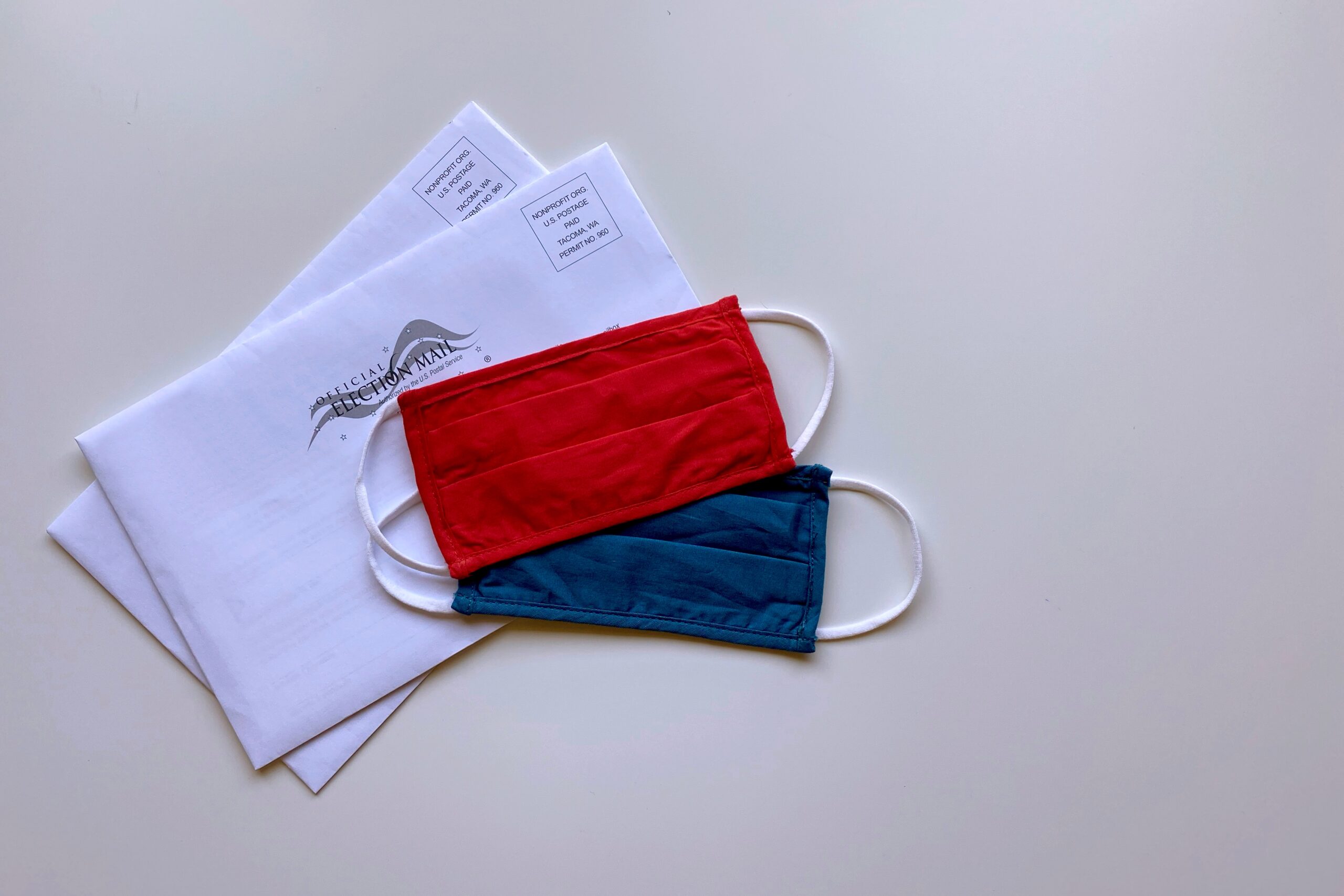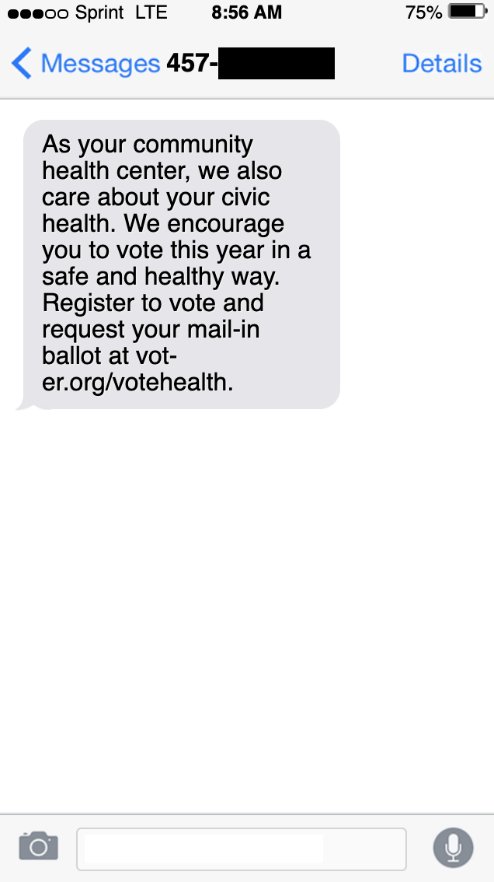On May 13th, nearly 10,000 Wisconsin residents received a text message prompting them to register to vote. It was perhaps an unsurprising text for an election year, but it came from the most surprising of sources: their healthcare provider. The initiative is part of a growing movement among healthcare providers to use digital outreach and their unique platform to empower their patients to register to vote.
The movement was sparked by the coronavirus pandemic, which not only revealed deep flaws and inequities in our healthcare system, but also turned voting into a public health crisis and caused devastating drop-offs in voter registration numbers.
At a time when selecting our public leaders has life or death implications, voter registration rates are down more than 70% in some states. Stay-at-home orders and social distancing guidelines have prevented Americans from registering in-person, and many of the most popular voter registration venues, like schools and DMVs, have closed or drastically cut hours, staffing, or services.
The text message campaign, sent by a community health center in Milwaukee, WI, in coordination with VotER, a healthcare-based voter registration program, shows how medical providers are uniquely positioned to fill the void.
Text message sent to almost 10,000 Milwaukee residents [note, text has been edited for clarity]
SMS messaging isn’t a new tool for healthcare providers. It’s a well-established, reliable, and essential part of their operations. From 2011 to 2018, the percentage of patients who exchanged texts with their healthcare provider more than tripled. Healthcare providers now use texts to alert patients of upcoming appointments, send follow-up reminders, and nudge patients about annual screening exams.
The appeal of texting to both parties is clear. Patients increasingly select texting as their preferred mode of communication, and providers can almost guarantee that their messages will be seen: text messages are opened 99 percent of the time, and the vast majority are opened within three minutes. Plus, text messages from healthcare providers have been shown to change patient behavior in areas like smoking, alcohol consumption, prenatal care, and medication adherence.
So, why haven’t most healthcare providers used this highly effective platform to remind patients about voting — a civic duty that is deeply connected to health? Some fear that voter registration services could be viewed as partisan or as politicizing medical care delivery. However, the US tax code allows healthcare institutions, as 501(c)(3)s, to offer voter registration resources to their employees, patients, and visitors. In fact, hospitals across the country already do this work within their walls. MGH Votes and the Penn Votes Project are just two examples of top-tier academic hospitals that have promoted voter registration for staff and patients without becoming embroiled in partisan controversies.
Once providers internalize that voter readiness work is allowed and accepted in the healthcare space, text messages emerge as a seamless and convenient way for them to get involved.
Finally, there is no better time than during a pandemic to text patients about voter registration. Texting adds no additional in-person contact between staff and patients, unlike previous efforts to set up tables in waiting rooms to assist patients with voter registration. Also, the pandemic gives healthcare providers a unique responsibility to talk to patients about voter registration during this election cycle. Voting in person will be perilous in November, given the likelihood of a second wave (or worse, an unmitigated first wave) of COV1D19 coupled with flu season. Providers concerned about their patients must talk to patients about the importance of voting in a safe and healthy way — whether that means voting from home or bringing their PPE to the polls.
Healthcare institutions can make an impact on both our public health and civic health by prescribing safe voting options, one text at a time.
Alister Martin is an emergency physician and Founder of VotER, a collaboration between ideas42, Turbovote, and MGH to help the nation’s emergency rooms build voter registration platforms that register low acuity patients to vote while they wait. He serves on the faculty of Harvard Medical School in the Center for Social Justice.
Charlotte O’Herron is a Candidate for a Master in Public Policy at the Harvard Kennedy School. She previously worked as a Research Analyst at MDRC, a social policy research organization in NYC.
Edited by: Derrick Flakoll
Photo by: Tiffany Tertipes



